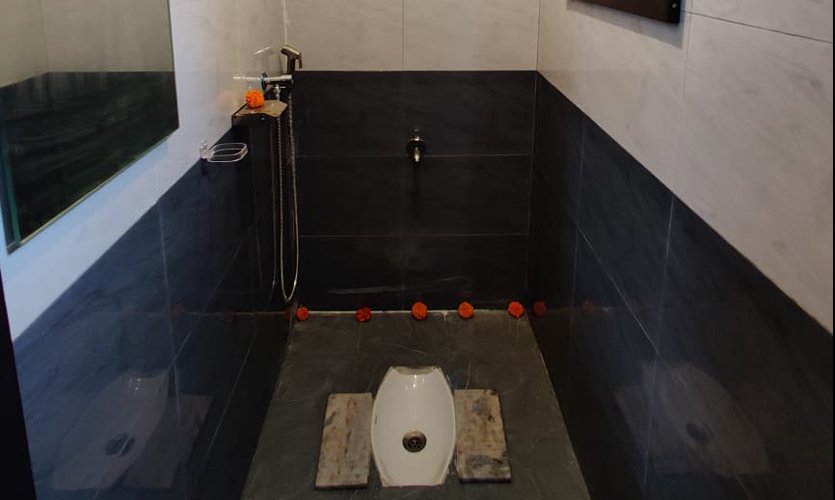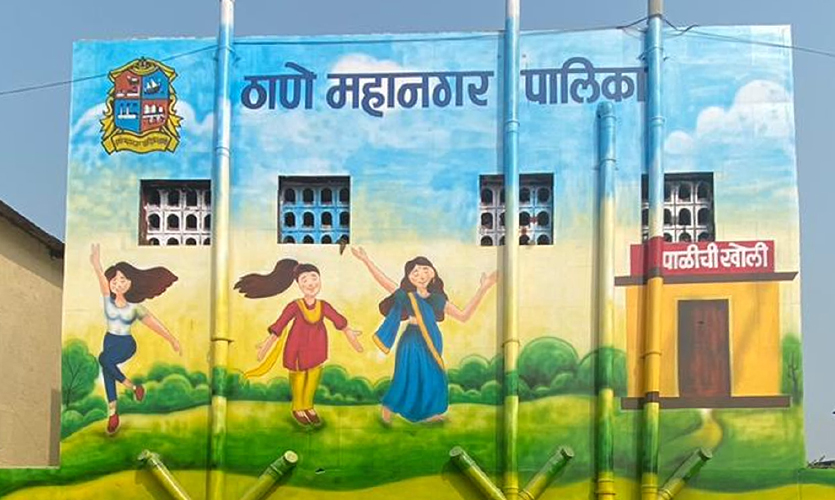With several menstrual hygiene brands popping up, talk around women’s menstrual health has come to the fore. According to a study by ActionAid, nearly 35 per cent of the 229 toilets surveyed in India, didn’t have a separate cubicle for women. Moreover, 53 per cent of women washrooms didn’t have running water. While 45 per cent didn’t have a proper locking mechanism in place. If you’re on your periods, this can seem like a nightmare.
Looking at these stats, it’s easy to say that menstrual hygiene is non-existent in India. And, with the stigma around periods, makes the society consider it menial. Recently, the Thane Municipal Corporation has taken everyone by surprise. The municipality has built a ‘Period Room’ at a public toilet in Shanti Nagar locality of Wagle Estate. This step has been taken by the Thane Municipal Corporation in collaboration with an NGO.

The Period Room
A one-of-a-kind initiative, this Period Room would help improve menstrual health in a small way. The room is equipped with a urinal, jet spray, toilet roll holder, soap, running water and a dustbin. “It’s a big relief for women especially living in the slum areas. Higher classes can afford hygiene facilities. But it becomes toiling for people in slums to find even the basic sanitation provisions,” says Madhulika Butle, a resident of Thane. The authorities are aiming to implement this initiative at 120 public toilets across Thane.
Impact On Women’s Health
Though it might seem like a basic step towards general menstrual hygiene, it brings relief to women from marginalised communities. “Every Nagar Nigam should learn and adopt this step. I will write to the U.P. government to implement this as soon as possible,” says Nand Kishore, retired Sanitary and Food Inspector, Nagar Nigam, Lucknow. Slums have the least sanitation facilities, changing pads can be both tempestuous and unsafe for menstrual health. “Even I find it extremely hard to change my pad during commute or in a public toilet. Most of them are dirty”, Butle points out.
“More than the convenience factor, this initiative has created a different outlook for authorities. And, provided a basic right to the residents living in Thane”, adds Kishore. Another hard fact is that only 36 per cent women in India use sanitary pads. Most others use either cloth and sometimes even leaves. Such Period Rooms can meet a woman’s basic sanitation needs. “Men can urinate in public, on walls, but what about women? Imagine bleeding and not being able to find a toilet for the necessary disposal”, concludes Kishore.










